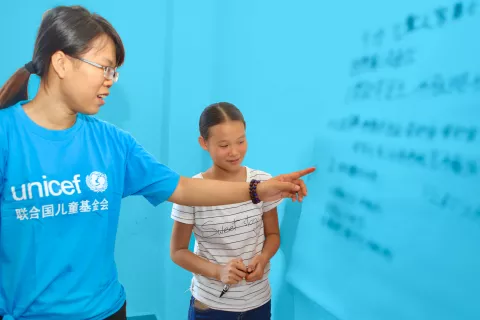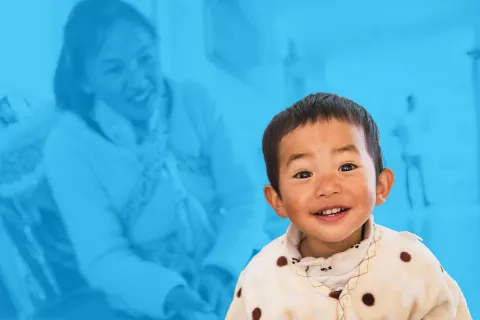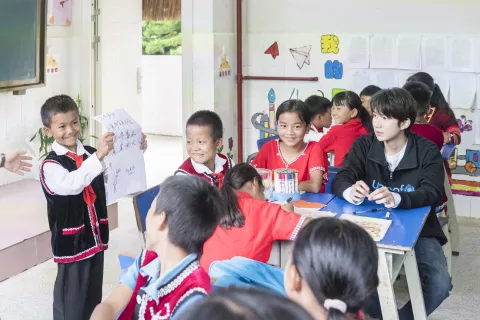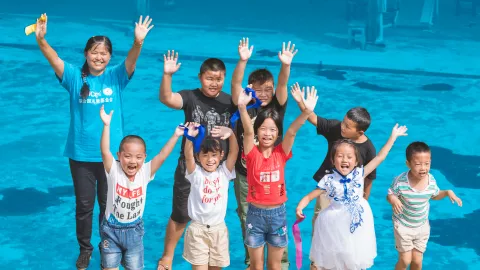What I Learned Volunteering at UNICEF China
A UNICEF China youth volunteer shares her story
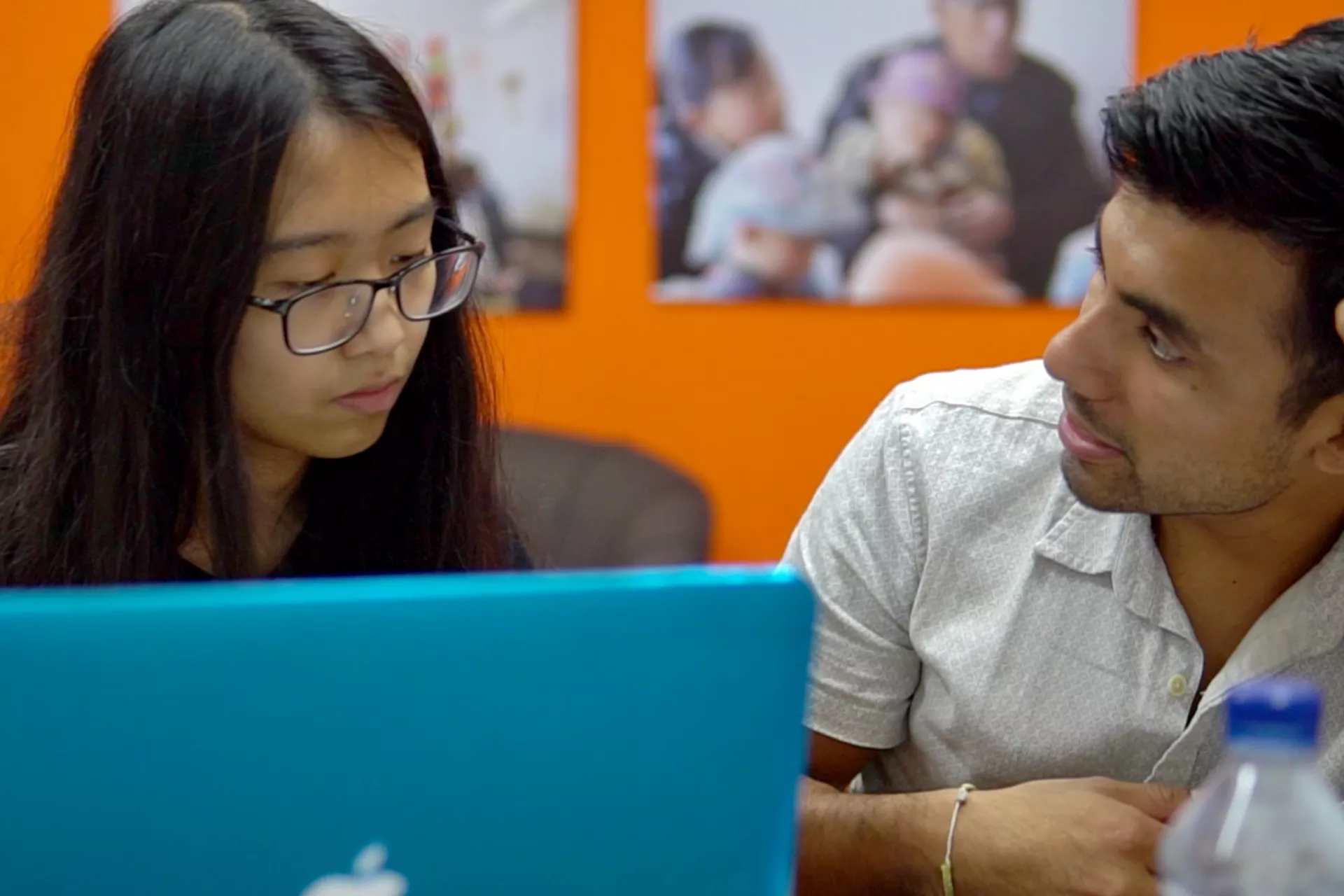
- Available in:
- 中文
- English
When I signed up for the volunteer position at UNICEF China, I was hoping I could get my hands on some real social issues and make a difference right away. But to be honest, my experience wasn’t exactly that at the beginning.
The office was hoping to improve its orientation process for new staff at the time, so I spent much time interviewing staff members about their orientation experiences and editing the existing orientation package. I committed to what I was assigned, but I have to say, I didn’t feel like I was creating the value I imagined. I also discussed with the Communication section to help them build up the Youth Council initiative. That made me feel like I was contributing to some actions, but still, I could not see myself making the difference I imagined.
After a few days, I and my fellow volunteers Tracy, Vader and Jenny were assigned to make a video for the official website. In doing so, we talked to staff members about their working experiences and how they perceived their job. From what they told us, I learned several things, and my attitude towards the entire volunteering experienced changed.
1. Significant progress takes time.
Those who were able to proudly describe all the differences their programs have made, are often those who committed the longest time. The deeper an issue roots, the longer it’s going to take. Coming for less than two weeks? Far from adequate.
2. The time is worthy, however long it is.
Mr. Zhenbo Yang (responsible for the WASH program) described one of the most satisfying part of his job as “seeing how the progress you made in one school being replicated in another, then eventually, how the change in one region influence another region”. While it might take ages to make the slightest process in social issues, once progress is made, progress can be continued and expanded. I don’t think Mr. Yang would have even the slightest regret in spending years of his time on his job.
3. The slightest contribution is valuable.
One of the staff members said in particular, “UNICEF’s job is to provide for children, and my job is to make sure this mission is facilitated”. I was later told, that this staff member worked specifically on what many people might consider the ‘tiniest’ things: as small as getting transportation in place, and making sure the lease of the office is all set. Those tasks might not seem to be contributing to children at first glance, but they are helping indirectly. He appreciated the importance of his job, and so did his colleagues.
Inspired by what I’ve heard, I feel glad that I was able to provide the UNICEF office with some assistance, however small it is. I wish to come back and provide more help. And I sincerely hope that more people in the society could share what I’ve learned, and feel the need to contribute to social issues in their own ways.


